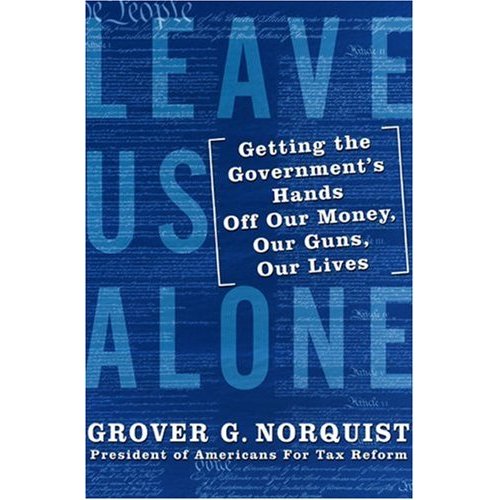 Traditionally there are three topics that one doesn't talk about in polite company: sex, politics, and money. I'm pretty candid about politics. A coming out blog involves sexuality, even if I am less forthright about actual sex. But I don't talk much about money (apart from public economics), and I've never brought up personal finances before. I have recently set a few financial goals, and I believe that sharing goals is the first step in achieving them.
Traditionally there are three topics that one doesn't talk about in polite company: sex, politics, and money. I'm pretty candid about politics. A coming out blog involves sexuality, even if I am less forthright about actual sex. But I don't talk much about money (apart from public economics), and I've never brought up personal finances before. I have recently set a few financial goals, and I believe that sharing goals is the first step in achieving them.- Upon starting my actual job (should be a little more than a year from now, scary!) I will contribute the maximum to my 401(k). I mix my 401(k) with a U.S. market index fund and an international index fund. Since I am young, I am going to push my risk threshold and also include a growth fund.
- Furthermore I am going to have a portion of each paycheck automatically deposited into a short term savings vehicle like a money market fund. Why?
- Within 30 months of starting my job, I want to own my house. The automatic savings will be for my down payment.
- Although I want to get out from under my student loans, I am not going to stress about them: just make the minimum payments, maybe more. The thing is educational debt usually has the lowest interest rate going, so while I don't want to get behind, I don't have an urgent need to pay it off ASAP.
- Then presto chango, 30-40 years later I want to be financially secure. By this I mean able to retire and maintain my standard of living. It would be nice to be Bill Gates, but I'll be content just being comfortable. Maybe.
The bad news: My student loans comprise the entirety of my credit history. Speaking of student loans, I have a lot of them. I'm actually afraid to know how much. I have never balanced a checkbook (though to my credit, I have never overdrawn!). Though I living like a student means I live fairly cheaply, it also means I rent and have no assets other than consumer goods.
I think my most ambitious goal is number 3. Thinking about it, I realized I need to improve my credit rating now. I figured the way to do that is to build a positive credit history, so I opened a Banana Republic Card (do you want to save 15% of your purchase today?). I made some purchases and am paying them off in a timely manner (which to me means before the crushing interest rate kicks in). I like Banana, so I'll probably make a few more purchases. Then in a few months, I'll trade up to an actual, can-use-everywhere card. This is scary to me. I grew up listening to Dave Ramsey in the car on the way back from school, so for years I feared credit cards, and only use debit type CheckCards. Or rather I feared how easy it is to abuse credit and create a financial nightmare. Nonetheless, it'll be tough to reach goals 3 and 5 without building a more positive credit history. I'm pretty sure that I can be disciplined enough to use my cards wisely, but they make me nervous nonetheless



8 comments:
Pink,
We share so many of your basic principles. I just went though much of this with my 19 yo nephew. I used to use debit cards heavily in the belief that "I've spent the money so why not get it out of my account and be done with it." After several crunch periods, I wished I had had the funds for a couple of extra weeks until the next paycheck arrived. The point is that credit card companies extend a grace period (becoming shorter these days) so we ought to take advantage of it. Many credit cards offer some sort of rewards (eg, airline miles) so it "pays" to funnel funds through the account to accumulate points.
You are certainly wise to take advantage of discounts such as Banana Republics card but don't hesitate to cancel it when the benefits become marginal. (OBTW, view your high quality business clothing as an investment rather than an expense. You won't go wrong starting at Brooks Bros until you particular tastes and appetites emerge.) Consider the staple items in your life (groceries, gas, utilities, clothing), the things you must purchase whether the firm has had a good month or not, and put all of that on a credit card. Discretionary spending might be with cash, check or some other device that you watch more closely.
Maintain two or more credit card accounts so that when you travel and must cancel one card for unhappy reasons, you can keep going on the other. Shop carefully for a card that does not put a surcharge on international purchases and things of that nature. (CapitalOne might be your best choice. AmEx should not be overlooked in spite of annual fee.)
Purchase Quicken or equivalent software and begin using it diligently. Acquire only bank accounts that are fully online and interface well with Quicken. Be fastidious about your data entry; insist that your accounts balance to the penny and keep them up to date. All of your investments can be entered and tracked in there but there are some tricks that you learn with time. (Spending categories is one of them. I'd be happy to send you a copy of mine and explain the rationale. The biggy is equality with tax categories.)
Starting your retirement savings is admirable but beware of becoming "savings poor" too early in life.
Your professional status and history will be a bigger factor when you approach a mortgage company than your credit score. Those people are used to dealing with lawyers and might not even hold it against you ;-) Never buy more of a house than you can afford with a 15 yr mortgage.
In grad school, my section leader spent more time managing his finances than he did leading the section but he made out well enough to recently donate ~$20 million to Iowa State. He recommended T Rowe Price as a mutual fund company, several of us grunts heeded and I have been happy with TRP.
Become a life member of your college alumni associations as soon as possible. It will feel like a lot to fork over but the savings over the years will be substantial and you won't have to bother with the endless reminders to re-up.
EVERYBODY wants into your wallet. Pick your favorite charities and organizations and keep the others at arms length. If you are unlucky and have a bunch of money left when you die, treat your charities well.
GET A WILL. (I'd like to have your porn collection.)
Wow, I really got on a roll there.....
What's striking is that your approach to wealth seems to make it an end in itself. You just want to be comfortable when you retire. Nothing wrong with that, obviously, at one level.
But there's no sense of saving and investing for anything special -- no college funds, no trips around the world, no charities, etc., are mentioned. You seem to just want a big pile of money, eventually.
In fact (and I know this shows how poor my business sense is) I can never understand why people want to save their money for when they are old. I'm not saying to ignore entirely the dictates of prudence. But from what I can tell you are going to be spending the best years of your life skimping and saving and working 90 hour weeks. Someday that might pay off. But that day might never come, and even if it does, you may be nothing more than grumpy old miser.
I think you should lighten up a bit -- plan for the future, but enjoy your 20s and 30s more. As it is, no amount of money will ever be "enough." You'll always want a little bit more. Which is to say, you'll always put off enjoying your money for tomorrow. And eventually we all run out of tomorrows.
Matthew, of course I view wealth as an end in itself, I'm a REPUBLICAN! Just kidding (sort of).
Actually, what I want is security free from worry about when my debt will catch up for me, or if I can make it to next payday. Then I want freedom to do what I like. I also want the luxury of providing nice things for me and my family, should I have one of my own. I want to retire at 50 instead of 65. Finally, I am unwilling to depend on (or burden) others when I am old, so I plan on saving early to prevent that.
I grew up comfortably, but I still know it's nicer to be a "have" than a "have-not." If that sounds shallow or greedy, I'm sorry, but deep down everybody thinks that. I'm just admitting it.
A real live Alex P. Keaton and not afraid to admit it. That's refreshing.
A great post, better than the WSJ. I'm waiting for the sun to come up in LA (if it hasn't burned down) to telephone my broker.
I guess your only challenge now will be to find a partner who shares your fiscal sense. Since Andrew Sullivan is already taken, the field is wide open. And since opposites attract, beware the hot surfer boy who will want to lure you to Hawaii for naked surfing on secluded beaches... it happens, believe me!
Pink:
Keep open the possibility you may not want to retire. Although this won't change your financial planning, you may want to do something totally different then and having the financial freedom to do what you want can be great. I 'retired' at age 40 and now, a few years later, I am bored out of my head and am going to go back to work doing something 180 degrees opposite of what I did. Problem is, for the first time in my life, I have no idea what I want it to be. Don't need the money, but have now decided to work at something til I drop, either full or part time.
That's a very good point, Andronicus. When I say retire, I really do imagine just what you are gettting at: not HAVING to work to support myself. Because I tend to get depressed when bored (not just bored, actually depressed--but don't worry, my therapist and I talk about this), I probably will do something to keep myself busy. Most likely it will be something in public policy world.
Yeah... I don't know where this came from... but I always grew up with this idea that everyone balanced their checkbook. It was just how it was done. I do it every two weeks or so, depending on how much activity I put on it.
And anytime I mention it to my friends they all look at me like I have 6 heads and all of them are speaking Greek. When did it become weird to balance your checkbook?
It became weird to "balance your checkbook" sometime after Al Gore invented the Internets and you could go to your bank's webpage and see all your debit card transactions, cashed checks, deposits, etc.
Balancing your checkbook is the financial equivalent of driving a horse and buggy.
Post a Comment